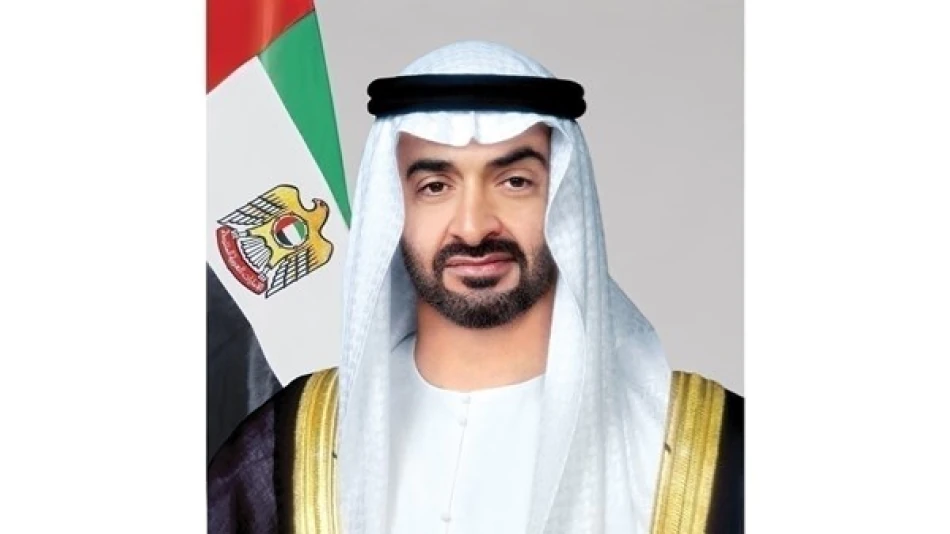
UAE President Embarks on State Visit to Turkey, Strengthening Bilateral Ties
UAE President's High-Stakes Ankara Visit Signals New Chapter in Turkish-Emirati Relations
UAE President Sheikh Mohammed bin Zayed Al Nahyan has arrived in Ankara for a state visit that could reshape Middle Eastern diplomatic and economic dynamics. The visit, responding to Turkish President Recep Tayyip Erdogan's invitation, comes at a crucial moment when both nations are recalibrating their regional strategies amid shifting global power structures.
Power Players in the Delegation
The composition of Sheikh Mohammed's entourage reveals the visit's strategic importance. The delegation includes key figures from security, defense, and economic sectors, suggesting comprehensive discussions ahead. Notable attendees include Deputy Prime Minister and Interior Minister Sheikh Saif bin Zayed Al Nahyan, and Dr. Sultan Al Jaber, the UAE's Minister of Industry and Advanced Technology who also heads the COP28 climate summit.
The presence of Investment Minister Mohammed Hassan Al Suwaidi and prominent businessman Mohamed Alabbar, chairman of Eagle Hills, indicates that economic cooperation will feature prominently in bilateral talks. This business-heavy representation suggests the UAE is serious about expanding its economic footprint in Turkey's recovering market.
Timing Reflects Regional Realignment
This state visit occurs against the backdrop of Turkey's economic stabilization efforts and the UAE's continued diversification strategy. After years of regional tensions, both countries have been pursuing pragmatic diplomacy, prioritizing economic interests over ideological differences.
Economic Opportunities in Focus
Turkey's recent monetary policy shifts and currency stabilization make it an attractive destination for UAE investment. The Emirates has been actively seeking new markets for its sovereign wealth funds, and Turkey's strategic location between Europe and Asia offers compelling opportunities in logistics, real estate, and technology sectors.
For Turkey, UAE investment could provide crucial capital for infrastructure projects and help diversify its economic partnerships beyond traditional European and American markets. The countries' combined expertise in renewable energy, reflected in Al Jaber's presence, could yield significant climate technology collaborations.
Strategic Implications for Regional Powers
This diplomatic engagement reflects broader shifts in Middle Eastern geopolitics. Both nations are moving away from the polarization that characterized the region during the Arab Spring aftermath. The UAE's reconciliation with Turkey follows similar diplomatic resets with Qatar and Iran, suggesting a new pragmatic approach to regional relations.
The visit also sends signals to other regional players, particularly Saudi Arabia and Egypt, about the benefits of economic cooperation over political confrontation. For international investors, this diplomatic warming creates new opportunities in previously restricted markets and could stabilize regional trade routes.
What Success Looks Like
Concrete outcomes from this visit will likely include investment agreements, particularly in Turkey's infrastructure and technology sectors. The UAE's expertise in creating business-friendly environments could help Turkey attract broader international investment, while Turkish manufacturing capabilities could serve UAE's regional trade ambitions.
The presence of climate and technology officials suggests potential collaboration on renewable energy projects, aligning with both countries' net-zero commitments. Such partnerships could position the UAE-Turkey axis as a bridge between European green technology and Middle Eastern energy markets.
This state visit represents more than diplomatic courtesy—it signals a fundamental shift toward economic pragmatism in Middle Eastern relations, potentially creating a new model for regional cooperation that other nations may follow.
Most Viewed News

 Layla Al Mansoori
Layla Al Mansoori






